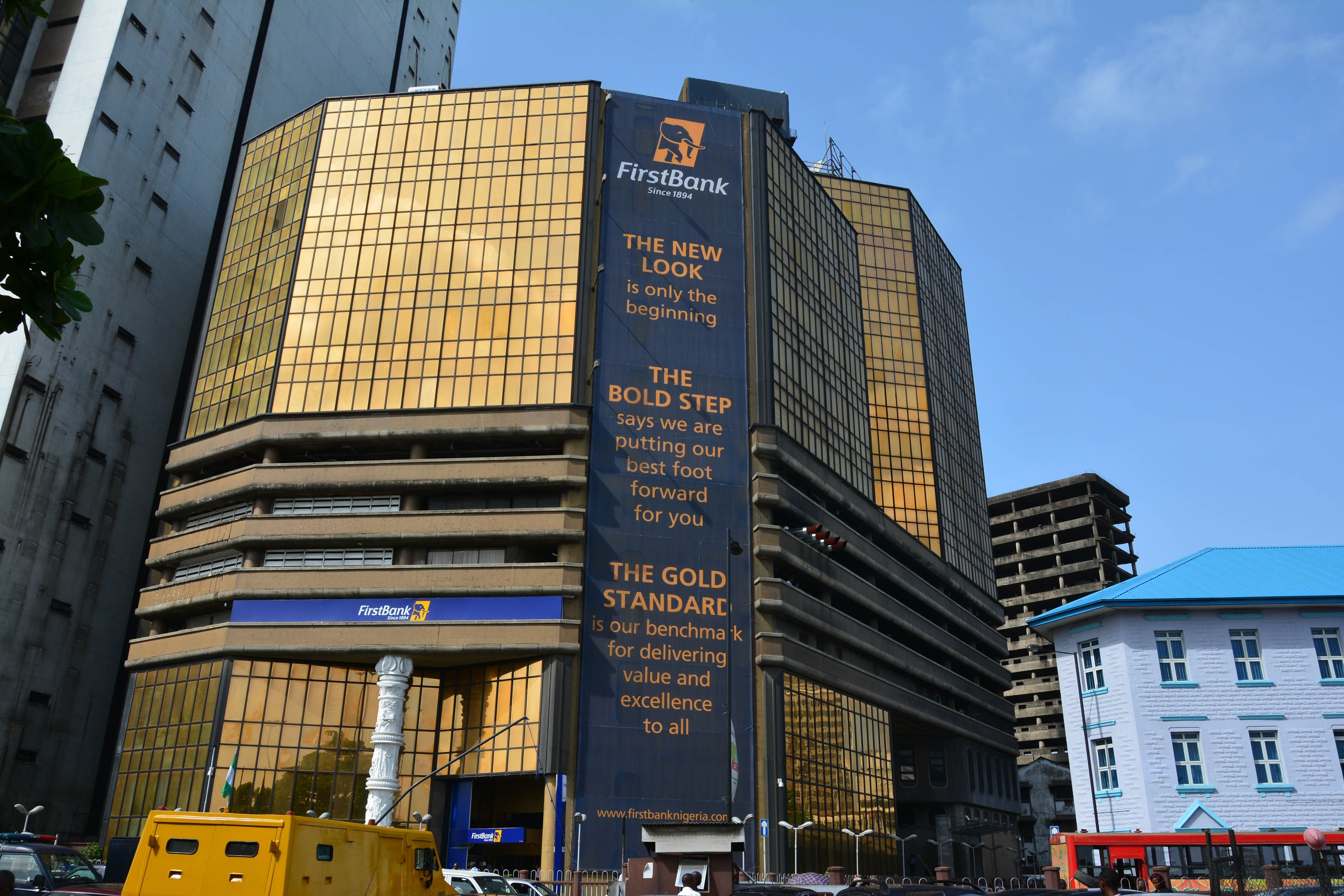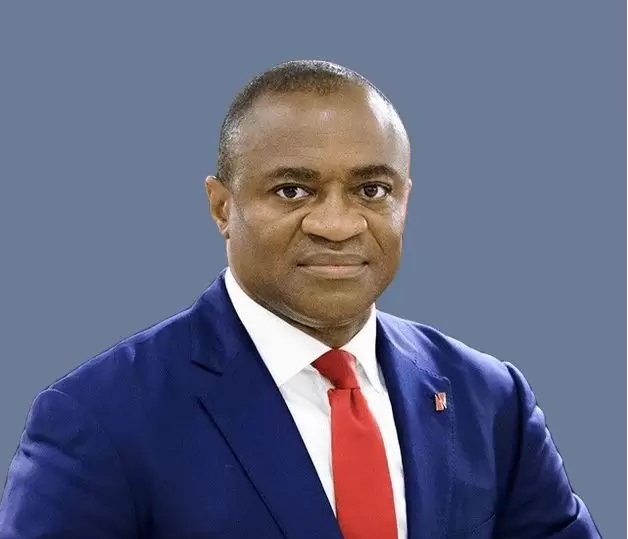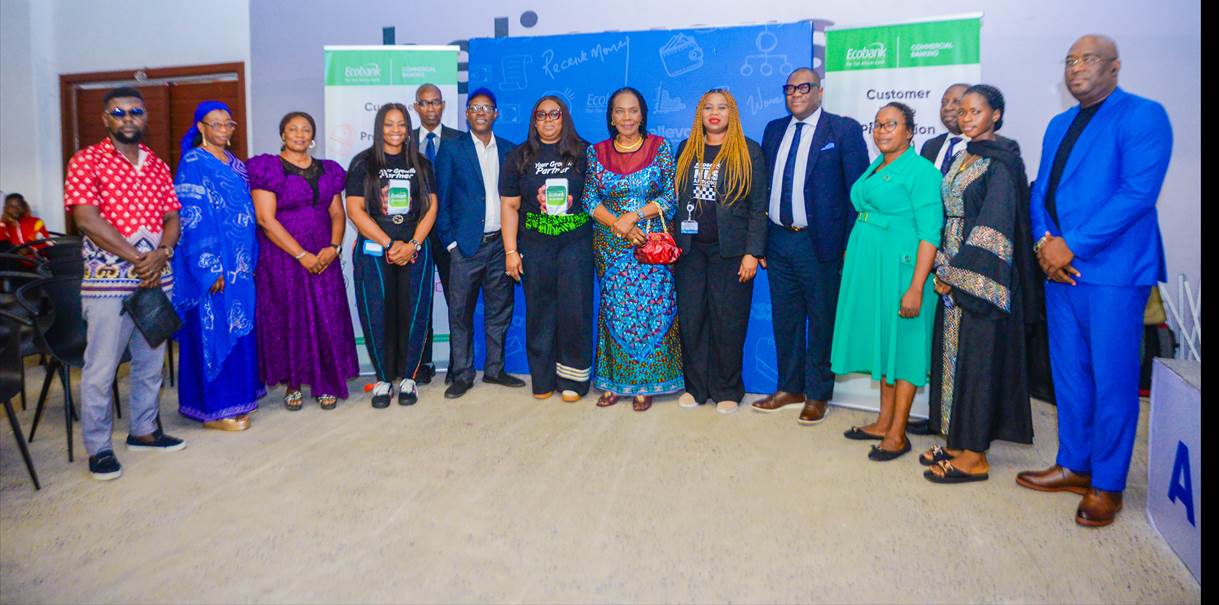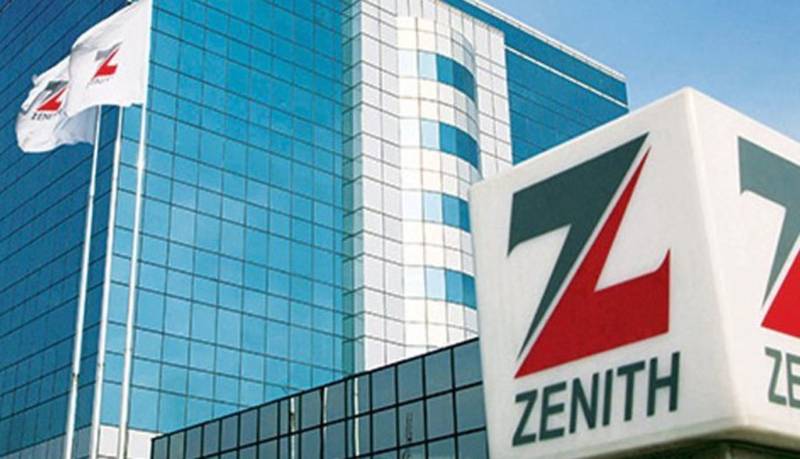Business
When a Bank Puts SMEs First

Last week will go down as one of the most challenging weeks, if not the most challenging, Nigeria has faced in 2020. What started out weeks before as very well-organised peaceful protests by young Nigerians campaigning to #EndSARS, was supplanted by hoodlums engaging in wanton looting, arson and destruction of public and private properties across many states at an unprecedented scale. By the end of the week, many lives had been lost, many properties and businesses completely destroyed and Nigeria has been left reeling from a shock that dwarfs any the country felt even at the peak of the COVID-19 outbreak.
In keeping with the Nigerian spirit of being one’s brother’s keeper, equally unprecedented efforts by individuals, groups and corporate organisations to try to provide assistance for people and businesses affected by the crises of the past week, have followed. Individuals and groups have announced donations of cash and materials, set up helplines to offer psychological counselling and support, and started online crowd-funding efforts in support of victims. Among corporate organisations, we have seen banks take a leading role. Some banks, such as Access Bank and Stanbic IBTC, have announced funds or desks they have set up to receive requests from, and process assistance for, affected individuals and businesses. One of these banks’ efforts include pledged interest-free loans and grants that affected businesses and individuals can access.
Another bank has seen thousands of requests for assistance pour in through the online channel it set up for the purpose. The requests have flowed in, not only because of the victims’ desperation for help, but also because of the humane approach to banking that this institution adopts. Always putting the customer at the heart of its business, FirstBank has been showing empathy with all those who have experienced one loss or the other as a result of the crises. Since last week, the bank has been seeking every opportunity to identify with people who are currently grieving and hurting.
Although the largest and most prominent member of Nigeria’s leading financial powerhouse, the FBNHoldings Group that is a one-stop shop for financial services ranging from commercial and investment banking to financial advisory, insurance brokerage and pensions custodianship, FirstBank is neither immune nor removed from the challenges people face. It is a human institution with thousands of humans working as employees to provide bespoke banking products and services to millions of other humans whose pulse the bank feels through its employees. Being part of a group with expertise across the broad spectrum of financial services, makes FirstBank the banking partner with the broadest shoulders to assist SMEs buffeted by the wave of violence witnessed across the nation last week.
Given the interconnectivity between Nigeria and FirstBank’s history, it is no surprise that a tumultuous week in Nigeria is giving way to one with stories of hope and optimism by Nigerians badly affected by the crises of the past week, who are looking to FirstBank for assistance. These Nigerians have been encouraged by the strides FirstBank has made over the years in the SME space as the bank of first choice for small businesses. Built around seven strategic pillars – of connect to infrastructure, connect to talent, capacity building, policy and regulation, connect to resources, connect to market as well as connect to finance – considered essential for the sustainability and growth of SMEs and intended to promote a healthy business interaction and adaptability of the SMEs with their immediate environment, FirstBank’s involvement with SMEs, through SMEConnect (the bank’s branded bouquet of empowerment initiatives, products and services tailor-made for SMEs), has been one that has sought to facilitate their growth into future economic powerhouses playing ever-increasing roles in Nigeria’s economic development.
Since its maiden SME National Conference in 2014, FirstBank has annually engaged small businesses and SME owners in series of empowerment seminars and workshops designed to improve their business capacity. Only this year, FirstBank held its inaugural SME Business Clinic in Lagos, Port Harcourt and Abuja with many SMEs in attendance. The SME Business Clinic featured Abayomi Adewumi, CEO of the Global Leadership Institute and an industry expert and business growth consultant with vast experience working with SMEs. He engaged participants on the FirstBank SME diagnostic tool designed for SMEs to check the health of their business, better understand it and drive profitability.
In 2019, FirstBank organised a weeklong SME event which had owners of SMEs in different sectors mentored across multiple states in the country. It was the first of its kind in the industry. Organised in partnership with SME Traction, a leading business coaching platform, it was aimed at empowering SMEs to make informed choices about their businesses, thereby facilitating growth and bolstering their contribution to the development of the economy. At the event, FirstBank’s Deputy Managing Director, Gbenga Shobo, underlined the importance the bank attaches to SMEs. He said: “At FirstBank, we recognise the impact SMEs have in promoting growth of the economy and are excited at the opportunity to continue to enable them prosper by strategically contributing to the sustainability of their business. We remain the trusted financial partner of SMEs and reiterate our resolve to be known as the brand that enables their success; much the same way that we have for over 125 years enabled Nigerians and the economy at large.”
This same point was elaborated at another FirstBank SME event, “Food Souk”, convened in 2019 in partnership with Eventful Limited, an events management firm, where the bank restated its commitment to the Federal Government’s diversification drive, promising to continue to support the agricultural value chain from production to consumption to create opportunities for SMEs in the food sector so they could in turn create job opportunities. The bank also extended its hand of partnership to all small businesses involved in organising different trade fairs and exhibitions. A food vendor at the event, Ms Ijeoma Ebeneme, the Chief Executive Officer, JEM N Iris, commended FirstBank for putting the event together. Ebeneme said she was at the food fair to make profit, meet new clients as well as create the needed publicity for her brand. It is for people like Ebeneme that FirstBank maintains an SME website (https://smeconnect.
In support of owners of SMEs operating in the education sector, FirstBank, in partnership with the Lagos State Employment Trust Fund (LSETF), set up a matching fund scheme of ₦5 billion LSETF-FirstEdu Loan. Officially launched in September by Governor Babajide Sanwo-Olu of Lagos State and Dr Adesola Adeduntan, Managing Director/CEO of FirstBank, the scheme aims to cushion the impact of Covid-19 pandemic on low-cost private schools by ensuring lending at an attractive interest rate. Speaking at the launch, Dr Adeduntan said: “At FirstBank we recognise the indelible role played by the education sector in the growth of any economy and this underscores our partnership with Lagos State Government for continuous development of the education services in Lagos State and the nation as a whole. The commitment by the Lagos State Government – including this partnership – to enable schools is quite commendable as this will mitigate the challenges caused by the lockdown on the education sector following the COVID-19 pandemic.”
It is for efforts like all those highlighted above and many more that the 2019 edition of KPMG’s Annual Banking Industry customer Satisfaction Survey named FirstBank as the biggest mover in the SME space. The 2014 edition of the Survey had named the bank as the most popular bank among MSMEs for both deposit transactions and credit/loan facilities with 26 per cent of the SMEs surveyed identifying the bank as one where they had an ongoing loan facility or had obtained one in the recent past. It is also for the same reason that the unfortunate events of the last week have reignited the bond between Nigerians and FirstBank, a partner that they can bank on in times of need. The bank’s track record leaves no one in any doubt of its unwavering commitment to continue to weather all storms with Nigeria and Nigerian SMEs with whom it shares a common destiny.
Culled from BusinessDay
Business
UBA Announces Strategic Expansion into Key Markets Across Africa

UBA Group senior executives recently concluded the Group’s Half Year Business Review. Held at global headquarters in Lagos Nigeria, Group Managing Director/CEO, Oliver Alawuba, brought together executives responsible for UBA’s twenty-four countries of operation.
It was an opportunity to restate the Group’s pan-African strategy, and commitment to further expanding the Group’s coverage across high potential markets across Africa, while also deepening its operations in its existing twenty African presence markets. With over 51.7% of Group revenues from ex Nigerian operations, UBA’s journey to being Africa’s most diversified financial services group was clearly in evidence,
The international strategic intent reinforces with the Group’s intention to deliver innovative financial solutions to its fast-growing global customer base. The strategy demonstrates UBA’s unique position as Africa’s global bank and ability to leverage growth opportunities in emerging and leading African markets.
The Group commenced its Pan African journey, with its entry into Ghana in 2004, followed by rapid expansion into 18 additional African markets. Today, as a resilient and future-focused institution, UBA continues to push boundaries by connecting Africa to the world and the world to Africa.
Mr Alawuba highlighted the Group’s expansion plans, disclosing that the Group is excited about the vast opportunities that the new markets present, a testament to UBA Group’s confidence in the African economy, providing world-class banking services that meet the continent’s evolving needs.
“UBA’s vision is clear – we are building a truly global institution anchored in Africa, but serving customers across continents. Further strategic expansion positions us to unlock new opportunities, support intra-Africa trade, and deliver world-class banking experiences wherever our clients choose to do business,” Alawuba said.
“In Europe, UBA has operations in the United Kingdom and upgrading its license in France, expanding its capacity to serve cross-border trade, investment flows, and the African diaspora, complementing our over 40-year presence in NY. These moves signal a clear message of UBA’s intent to reshape the competitive landscape”, Alawuba further said.
As part of the Group’s plan to expand its global presence, UBA, in January, announced plans to open operations in Saudi Arabia.
Operating in twenty African countries and the United Kingdom, the United States of America, France and the United Arab Emirates, UBA provides retail, commercial and institutional banking services, leading financial inclusion and implementing cutting edge technology. United Bank for Africa is one of the largest employers in the financial sector on the African continent, with 25,000 employees’ group wide and serving over 45 million customers globally.
Business
Sustainable Education Ecosystem: Ecobank Unveils Customer Value Proposition

Ecobank Nigeria, an affiliate of the leading pan-African banking group, Ecobank Group, has announced a comprehensive suite of innovative financial solutions designed to support all key stakeholders within the education ecosystem. These offerings are aimed at driving financial inclusion, operational efficiency, and sustainable growth across the sector.
For school owners and educational leaders, Ecobank offers cash-backed loans to support both operational and capital expenditures. These are complemented by treasury management tools that enhance financial oversight, along with digital collection platforms that ensure seamless and efficient school fee processing. Teachers and non-teaching staff also stand to benefit significantly. Ecobank provides salary access tools that enable timely and flexible income management, career development programs to support continuous professional growth, and financial wellness plans designed to promote long-term financial stability.
Suppliers and partners within the education value chain benefit from tailored financial solutions such as invoice factoring for improved cash flow, inventory financing to maintain operational continuity, and marketplace visibility to expand their reach and business opportunities within the sector.
Speaking at the unveiling event in Lagos, Kola Adeleke, Executive Director, Commercial and Consumer Banking at Ecobank Nigeria, reaffirmed the bank’s commitment to empowering the education sector with practical financial solutions that address real-world challenges, enabling all participants, from institutions and educators to families and partners, to thrive.
“Our integrated financial and non-financial propositions form part of a broader strategy to strengthen our leadership in the education financing space, while contributing meaningfully to national and continental goals around access, equity, and excellence in learning. We have designed these solutions to meet the diverse needs of school proprietors, teaching and non-teaching staff, students, and parents. Ecobank is committed to empowering the education sector through seamless collections, access to credit, and a suite of sustainability-focused offerings. Education is a pillar of national development, and we recognize the sector as an integrated system of needs and opportunities. Our goal is to support this system not just with financing but also with digital tools, career development programs, and sustainability initiatives,” he said.
Also speaking, Adebukola Ademiluyi, Head of Education, Faith, and Social Services at Ecobank Nigeria, highlighted the bank’s commitment to affordable and inclusive financing options. She noted that by integrating smart financing with sustainability, digital infrastructure, and inclusive participation, Ecobank is pioneering a full-service banking model tailored to the realities of Africa’s education sector.
“More than just funding, we are enabling seamless school management systems through API partnerships that digitize operations such as student registration, staff payroll, inventory management, and parental communication. We also place strong emphasis on supporting parents and guardians, providing financial planning tools, access to student loans, merit-based scholarships, and child progress monitoring systems. These innovations are designed to ease financial burdens and deepen parental involvement in their children’s academic journeys,” she said.
Business
Zenith Bank Retains Top Position in Nigeria by Tier-1 Capital

Zenith Bank Plc has retained its position as the Number One Bank in Nigeria by Tier-1 Capital for the sixteenth consecutive year, in the 2025 Top 1000 World Banks’ Rankings, published by The Banker, Financial Times Group, United Kingdom.
This ranking places Zenith Bank Plc as the 581st Bank globally, with a Tier-1 Capital of $2 billion.
The global rankings, published in the July 2025 edition of The Banker, was based on the 2024 year-end Tier-1 capital of banks. This is the primary basis for most international organizations’ assessments of banks.
Commenting on this achievement, the Group Managing Director/CEO of Zenith Bank Plc, Dame (Dr.) Adaora Umeoji, OON, said, “We are thrilled to have retained our position yet again as the Number One Bank in Nigeria by Tier-1 capital for the 16th consecutive year. This achievement is a reflection of the bank’s robust financial performance, prudent risk management and steadfast dedication to delivering exceptional value to our customers and stakeholders”.
She thanked the Founder and Chairman, Jim Ovia, CFR, for his visionary and transformative leadership which has played a pivotal role in cultivating a resilient and thriving institution. She also expressed her deepest appreciation to the bank’s esteemed customers for their continued loyalty to the Zenith brand, the Board for the sound corporate governance, and the staff for their relentless & tireless efforts in ensuring the bank’s success.
Tier-1 Capital describes capital adequacy, the core measure of a bank’s financial strength from a regulator’s perspective. According to the ranking, Tier-1 Capital, as defined by the Bank for International Settlements (BIS) guidelines, includes loss-absorbing capital, i.e., common stock, disclosed reserves, retained earnings, and minority interests in the equity of subsidiaries that are less than wholly owned. A strong Tier-1 capital ratio boosts investor and depositor confidence, indicating the Bank is well-capitalised and financially stable.
According to the audited financial results for the 2024 financial year presented to the Nigerian Exchange (NGX), the Bank recorded a double-digit growth of 86% in gross earnings, increasing from N2.13 trillion in 2023 to N3.97 trillion in 2024. This growth was driven by a 138% increase in interest income, supported by investment in high-yield government securities, and growth in the Bank’s loan book.
Zenith Bank’s profit before tax (PBT) rose by 67%, reaching N1.3 trillion in 2024 from N796 billion in 2023. This performance saw the bank record an unprecedented total dividend payout of N195.67 billion at N5.00 per ordinary share in the 2024 financial year.






